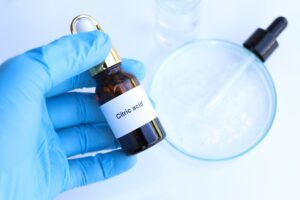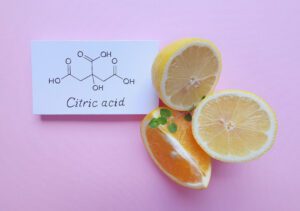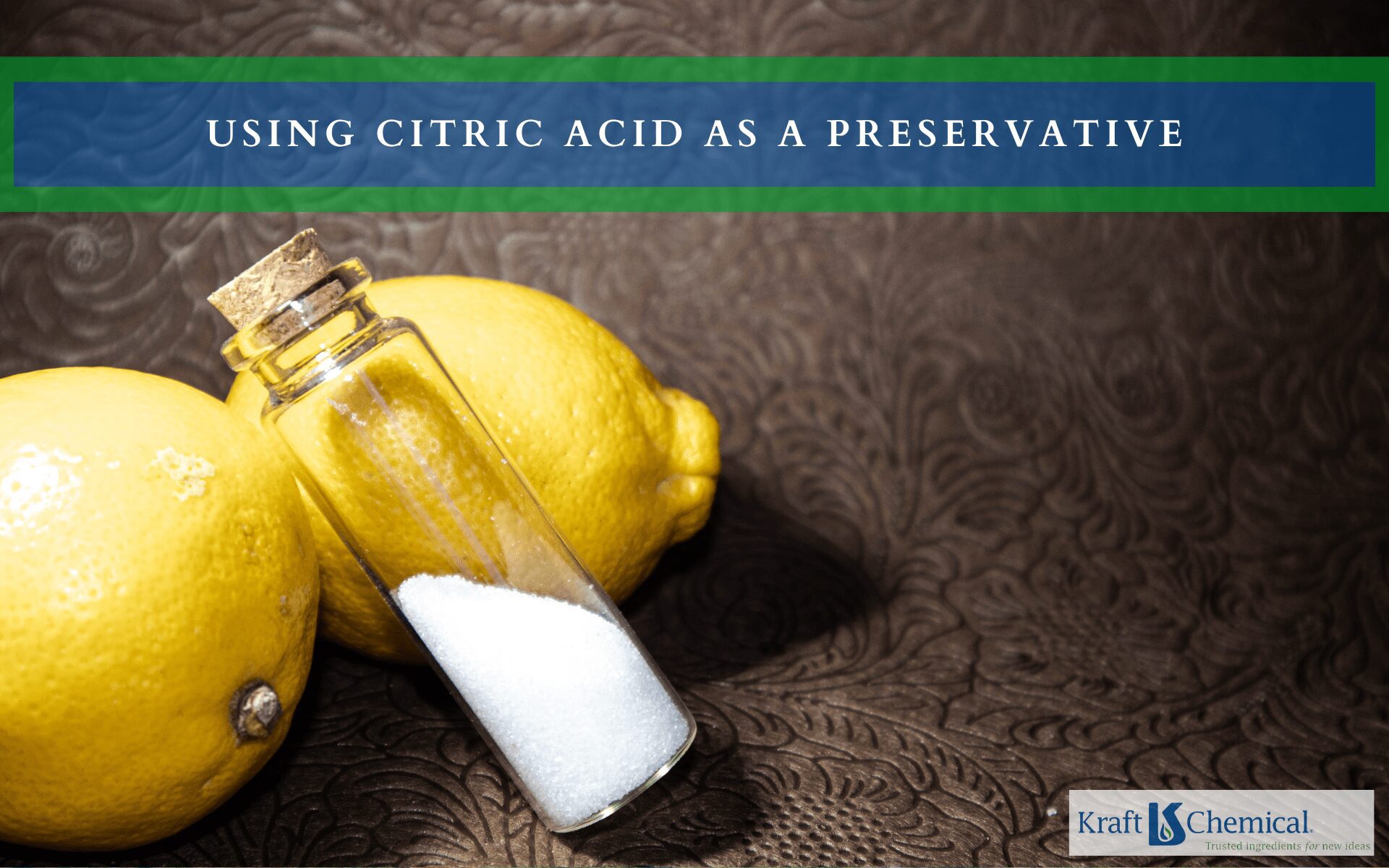What Is Citric Acid?
Citric acid is an organic compound that has the chemical formula C6H8O7. It’s a naturally occurring compound that’s versatile and is generally considered safe for everyone according to the FDA. Citric acid can slow the growth of bacteria, yeast, mold, and fungus. It prevents products from spoiling, prolonging the shelf life of foods, beverages, and cosmetics. Its antioxidant properties have been studied to help protect against anti-aging, making it a great choice for anti-aging products.
Citric Acid Is Naturally Occurring
Citric acid is a natural compound that can be found in fruits such as oranges, lemons, and berries. These fruits have a high yield of citric acid which makes them sour and pungent.
How Can I Use Citric Acid as a Preservative?
Citric acid as a preservative is commonly used in food, cosmetics, and personal care products. Some food manufacturers choose citric acid as a preservative because it’s a clean and safe compound to ingest. In personal care products and cosmetics, the trisodium and tripotassium salts in citric acid make it an effective chelating and buffering agent, which improves a product’s shelf life and color clarity.
- Food Preservation
The most common use of citric acid is as a preservative in foods. Citric Acid is naturally occurring in fruit and has a weak sour taste. Among the ways it can be used in food, citric acid can level the taste in wine by correcting the natural acid deficiencies in it. Manufacturers can also use citric acid to keep ice cream from separating or prevent caramel from crystallizing. The food industry uses citric acid as a preservative in packaged, processed, jarred, and canned food to keep it fresh over time.
- Cosmetics
In cosmetics, citric acid is often used to preserve the color and fragrance compounds in toiletries and perfumes. There are also properties in citric acid that can help clear skin infections, making it common in face creams and makeup.
- Personal Care Products
Personal care products like soaps, shampoos, and rising agents sometimes use citric acid as a pH adjuster, clarifying agent, and water softener. The chelating agent in citric acid acts to remove hard water ions which improves the lathering and foaming process. Also, the chelated calcium and magnesium ions in citric acid decrease insoluble residues, making it difficult to rinse off the soap or product. Citric acid can be mixed with other ingredients to create an “alpha hydroxy acid” that helps keep skin smooth in personal care products like lipsticks, hair spray, and deodorant.
Are Preservatives Bad for You?
 Citric acid as a preservative is not bad for you. Unlike other preservatives, citric acid is safe and non-harmful to humans. One of the very first natural, most important preservatives to be discovered was citric acid. It’s used worldwide, and the United States alone produces 1.6 million tons of it each year. Of that number, two-thirds is used in the food and beverage industry.
Citric acid as a preservative is not bad for you. Unlike other preservatives, citric acid is safe and non-harmful to humans. One of the very first natural, most important preservatives to be discovered was citric acid. It’s used worldwide, and the United States alone produces 1.6 million tons of it each year. Of that number, two-thirds is used in the food and beverage industry.
Benefits of Using Citric Acid as a Preservative
Since citric acid is a natural preservative without any harsh chemicals or additives, many benefits of using it in product preservation include:
• Keeping food fresh and preventing foodborne illnesses such as botulism which is found in canned foods that are low in acid.
• Has protective effects in the body that can be used in medicines to kill bacteria and lower acid in the urine, often found in kidney medications.
• Removes tough stains from clothes, making it found in many cleaning products as well.
Why Use Citric Acid as a Preservative?
There are many options in preservatives for manufacturers to use in their products, but citric acid is favored for its safe and long-lasting qualities. The salts in citric acid not only improve a product’s shelf life but also maintain a product’s original color. Other reasons why using citric acid as a preservative is the best preservation option include:
> It’s a raw material.
> It is an excellent chelating and buffering agent.
> It’s a water-soluble chelating agent.
> Reduces pH in non-alkaline personal care products.
> Corrects natural acid deficiencies in wine and other foods.
Industries Where Citric Acid Is Found
1. Agriculture
2. Animal Care
3. Bakery
4. Candy
5. Ceramic and Glass
6. Cosmetics/Personal Care
7. Dairy
8. Food & Beverage
9. Industrial and Institutional
10. Meat
11. Metal Finishing
12. Paint and Coatings
13. Pharmaceutical
14. Specialty Industries
Preserve Your Products With Kraft Chemical
Since 1935, Kraft Chemical has supplied product manufacturers with Grade A ingredients. With citric acid being so multifaceted, it becomes a staple ingredient in high-production companies that need a safe preservative. Speak with one of our specialists today to learn more about how you can preserve your products while also meeting regulatory requirements.
Comments are closed.


